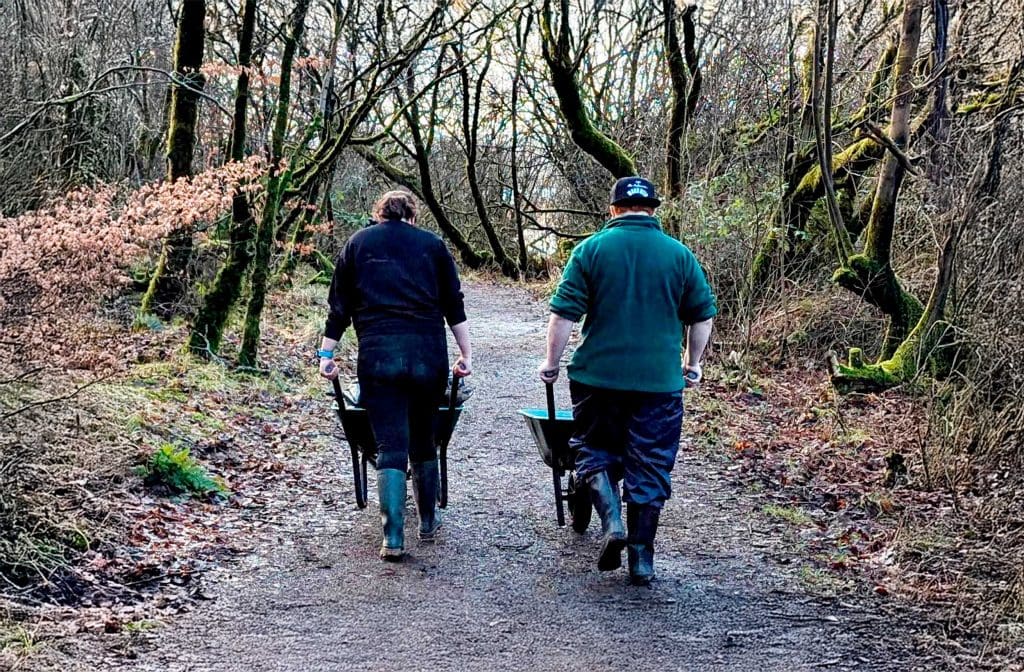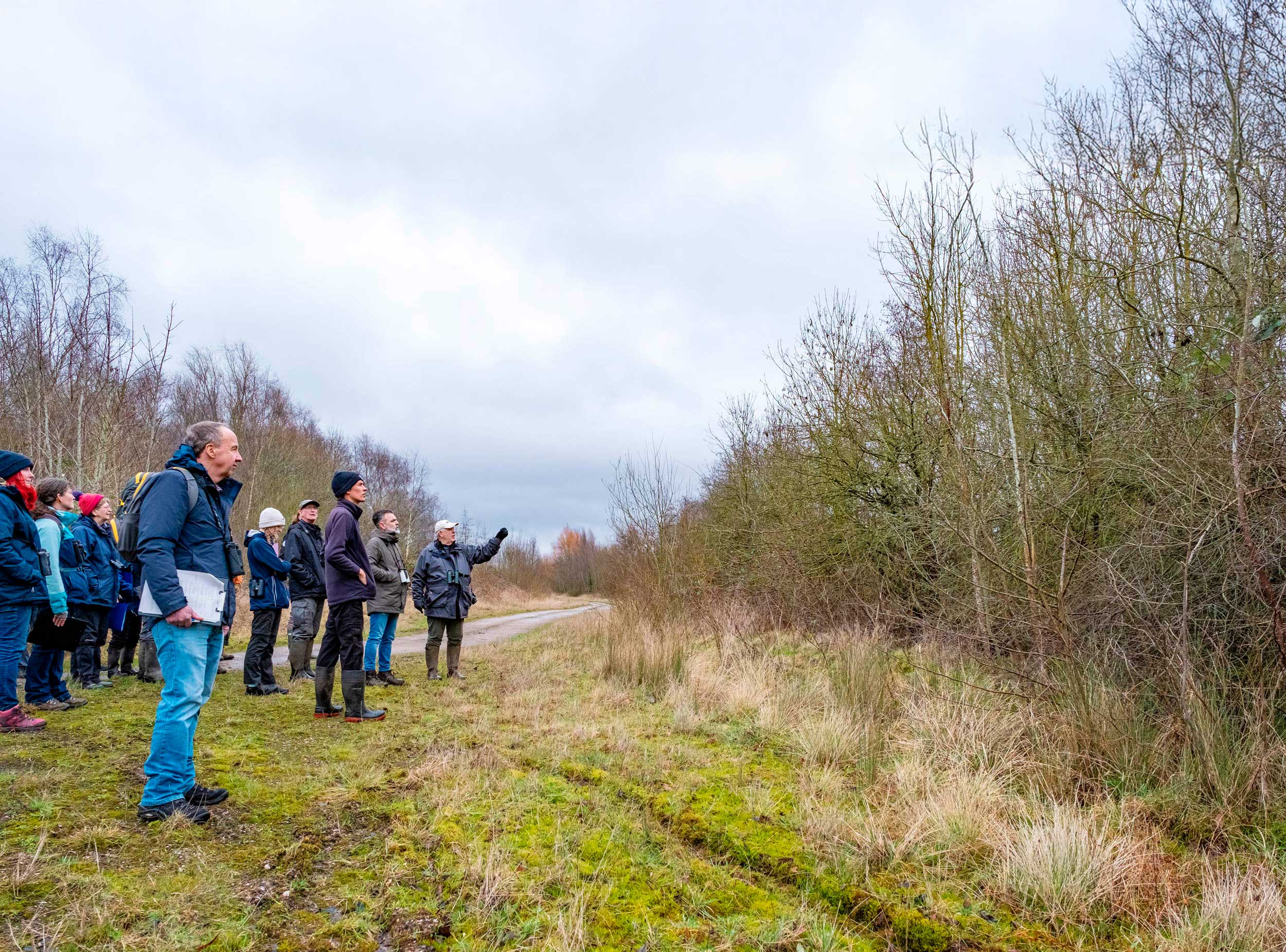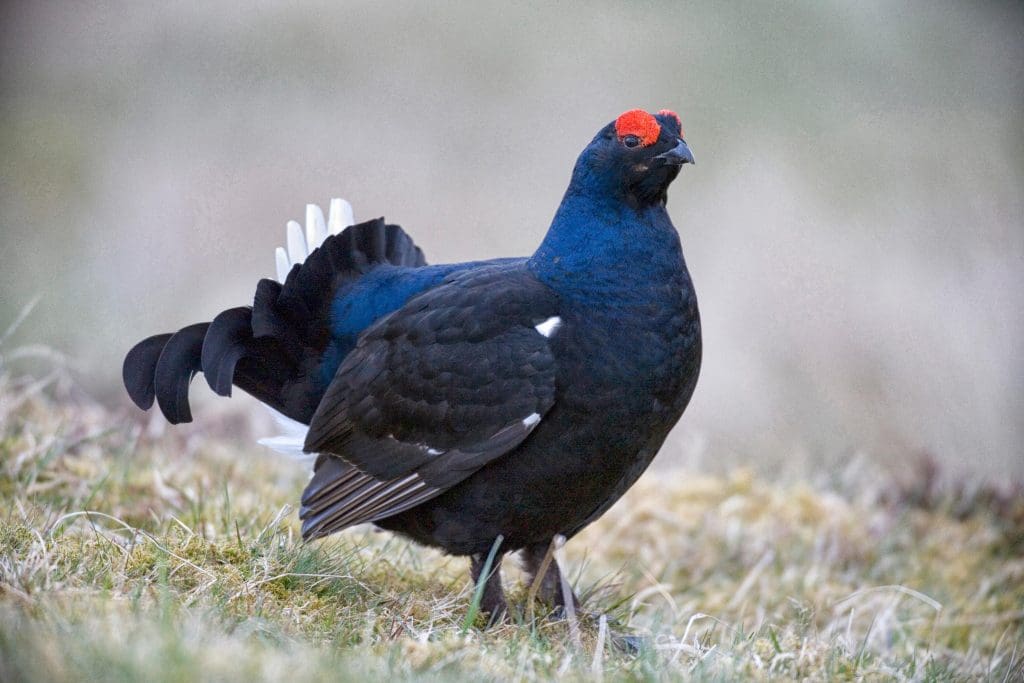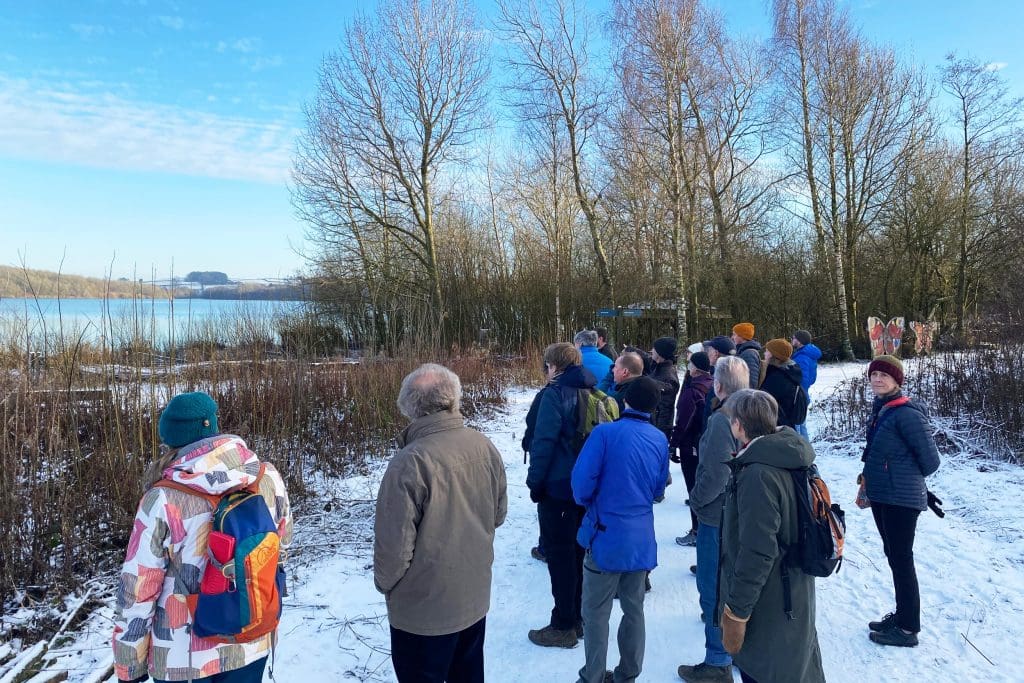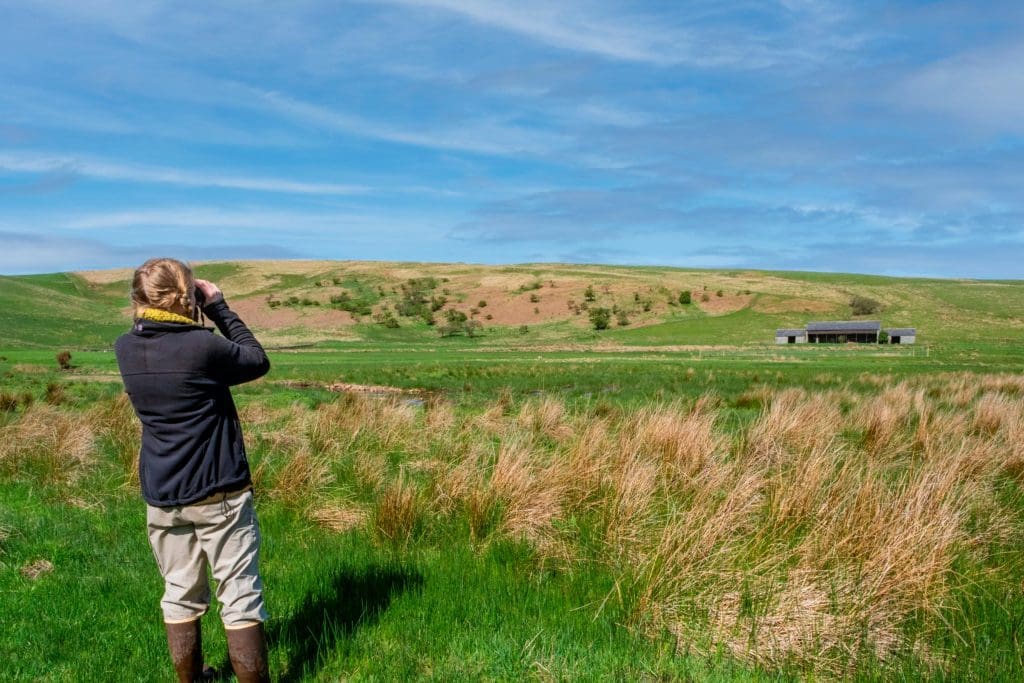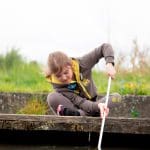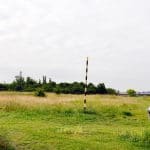We’re grateful to all who donate their time and skills, including the 500-plus Species Volunteer Network (SVN) members. These dedicated souls strive to revive the fortunes of some of the UK’s most threatened species, and have expanded into Wales and Scotland thanks to players of People’s Postcode Lottery. Here are a few SVN projects:
Black Grouse gather each spring at moorland leks where males display. Once widespread in Mid and North Wales, the species is now Red-listed as a UK bird of conservation concern. Since the 1990s, the RSPB Black Grouse Recovery Project has worked with landowners and communities to rebuild populations, particularly through habitat restoration. To monitor range and numbers, the RSPB has collaborated with Natural Resources Wales, the Clwydian Range and Dee Valley National Landscape for the past three decades to conduct lek counts. This year, SVN members set out on long walks in the dark to undertake coordinated counts at dawn, obtaining accurate Black Grouse numbers to help us take on targeted conservation work and measure its effectiveness.
Listen to the Black Grouse lek. Video: The RSPB
In Scotland, volunteers – including 38 new recruits this year – performed dawn and dusk surveys of five breeding wader species on farmland sites across Cairngorms National Park for the Cairngorms Wader Survey. The volunteers found alarming declines in numbers of Lapwings, Redshanks, Oystercatchers, Curlews and Snipe. This was supported by the Strathspey Wader and Wetland Initiative and has been undertaken every five years since 2000 across 125 sites. The results will inform wader-friendly management through agri-environment schemes on the farms surveyed.
In the West Midlands, 53 SVN volunteers are helping to power a project to save Willow Tits. Where the Willow Tits Are is a partnership project between Macc Wild Network and the RSPB with expert lead from Jim Clarke. This project surveys Willow Tit numbers in the south and west Peak District and maps these records and areas of potential habitat. The work also uses passive acoustic monitors to improve knowledge of Willow Tit distribution and activity for future habitat interventions. This project has been made possible through Farming in Protected Landscapes (FiPL) funding from the Peak District National Park.

Stand with us to save species
If you’re interested in joining the dedicated people who make up the Species Volunteer Network, get in touch. Enjoy time spent in nature whilst playing your part in saving species, and meet like-minded friends along the way.
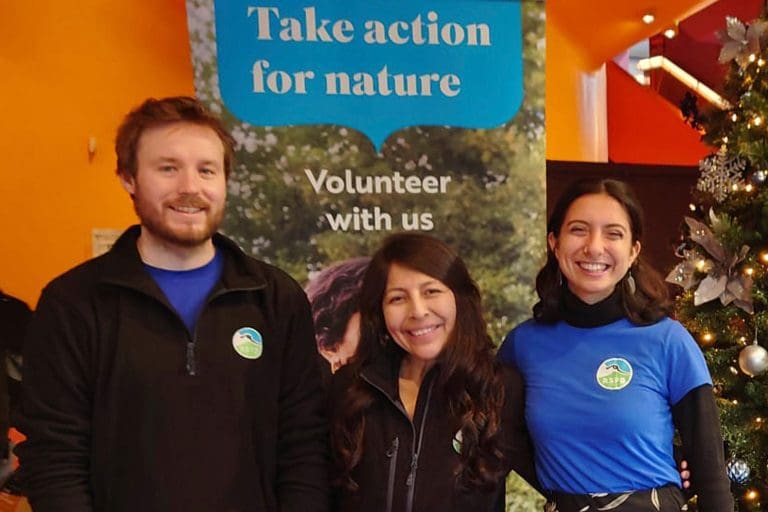
Volunteer with the RSPB to make a difference for nature. Photo: The RSPB
You might also like
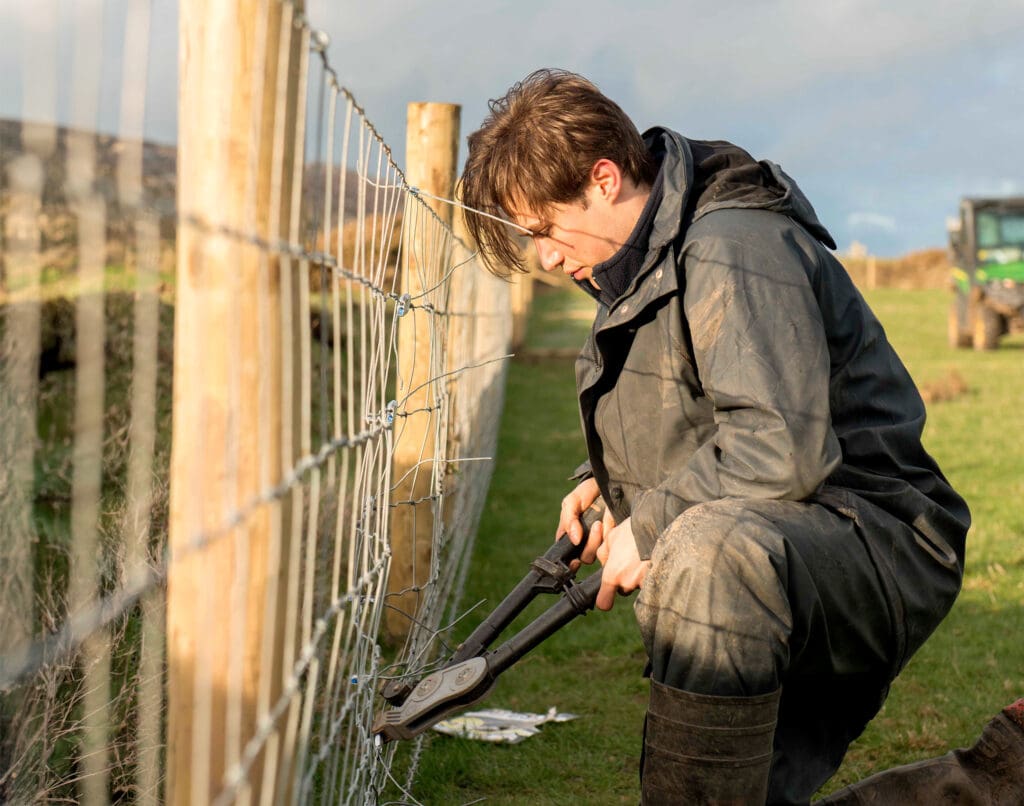
Celebrating amazing volunteers
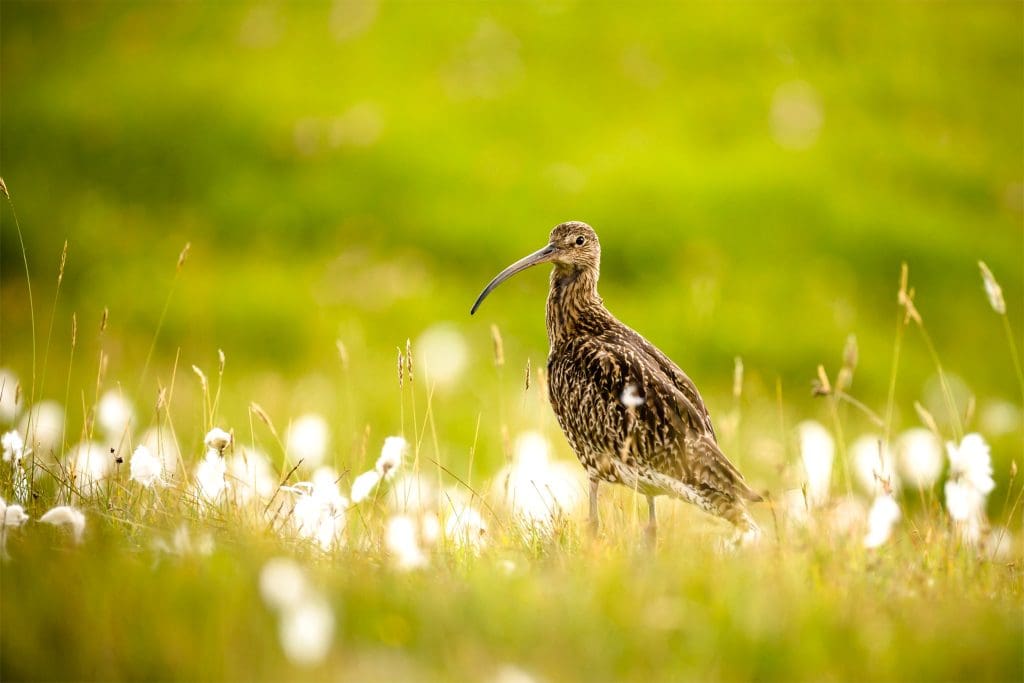
Answering the call of the Curlew
